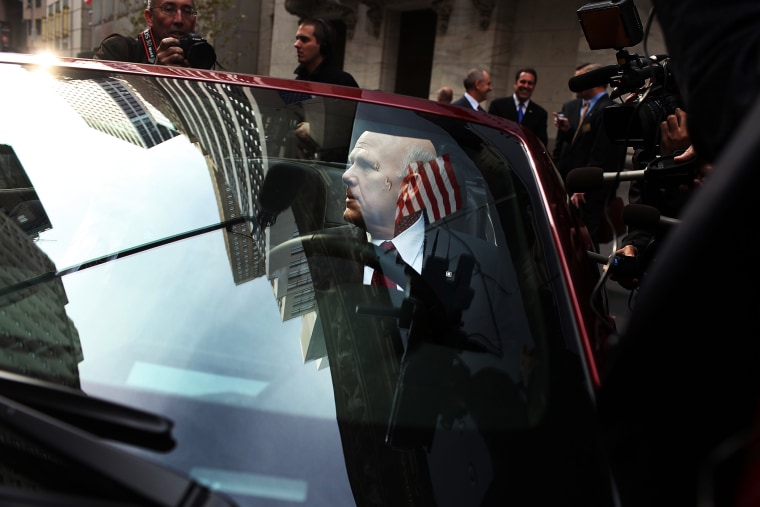The Treasury Department approved "excessive compensation" for top corporate executives while their companies were still on the hook for the taxpayer-funded bailout, the bailout's official watchdog SIGTARP said Wednesday, going against the pay limits that the White House had previously set.
Under the bailout legislation that Congress passed during the financial crisis, firms that received taxpayer-funded bailout money were subject to certain limits on executive compensation. In early 2009, the White House took additional steps to restrict executive pay for bailed-out firms, limiting executive pay to $500,000. Treasury went too far in making exceptions to those new rules for top-earning employees at General Motors and Ally Financial, the bailout's Special Inspector General concluded in a new report.
President Obama originally announced the executive pay restrictions with great fanfare, vowing to prevent “executives being rewarded for failure." At the time, the Treasury Department said that compensation in the form of stocks couldn't be paid out until after the company had repaid the government for the bailout money.
However, it was up to Treasury to enforce the rules, and TARP's watchdog says that officials were too lenient in making exceptions to the rules at GM and Ally.
"Treasury approved at least $1 million in pay for every Top 25 employee in 2013 and increased compensation by 28% for GM and Ally Top 25 employees from 2009 to 2013. Treasury tripled the number of GM and Ally employees who received cash salaries exceeding $500,000 from 2009 to 2013," the inspector general said in the report.
What's more, the report added, "Treasury approved $3 million in pay raises, ranging from 4% to 20%, for nine GM employees in 2013, most of whom received raises in consecutive years."
The Treasury Department pushed back strongly against the report's findings. SIGTARP's report "unfortunately contains many inaccuracies and omissions.," Treasury Special Master Patricia Geoghegan said in a statement. "The record shows that the Office of the Special Master has fulfilled its obligation to balance limiting executive compensation with allowing companies to repay taxpayer assistance."
Treasury added that executive compensation at both Ally and GM were average for their industries, about 4% below the median cash salary and 56% below the median for "total cash compensation for similar positions at similar companies," the department said in a letter to SIGTARP. It added that there was no legislative cap on executive pay at TARP-assisted firms in the law originally passed by Congress.
But SIGTARP pointed out that Treasury had approved the exceptions to executive pay at a time when GM and Ally still had not fully repaid the government for the TARP funds they received. Ultimately, Treasury sold stock in both companies at a loss to help the companies exit the program. In December 2013, GM exited TARP after Treasury sold its shares of GM stock at a loss, ultimately costing taxpayers $11.2 billion for the bailout, the report notes. A month later, Treasury sold Ally stock at a $845 million loss.
"Loosening limits on executive compensation for companies unable to repay TARP subjects Treasury to criticism that is rewarding top executives at companies that are losing taxpayers’ money over the interests of the taxpayers already shouldering billions of dollars in losses on those investments," the report concludes.
The Treasury Department said taxpayers have recovered the vast majority of the $440 billion spent on TARP and that only one of the seven companies is still under its jurisdiction. That company is Ally Financial.
